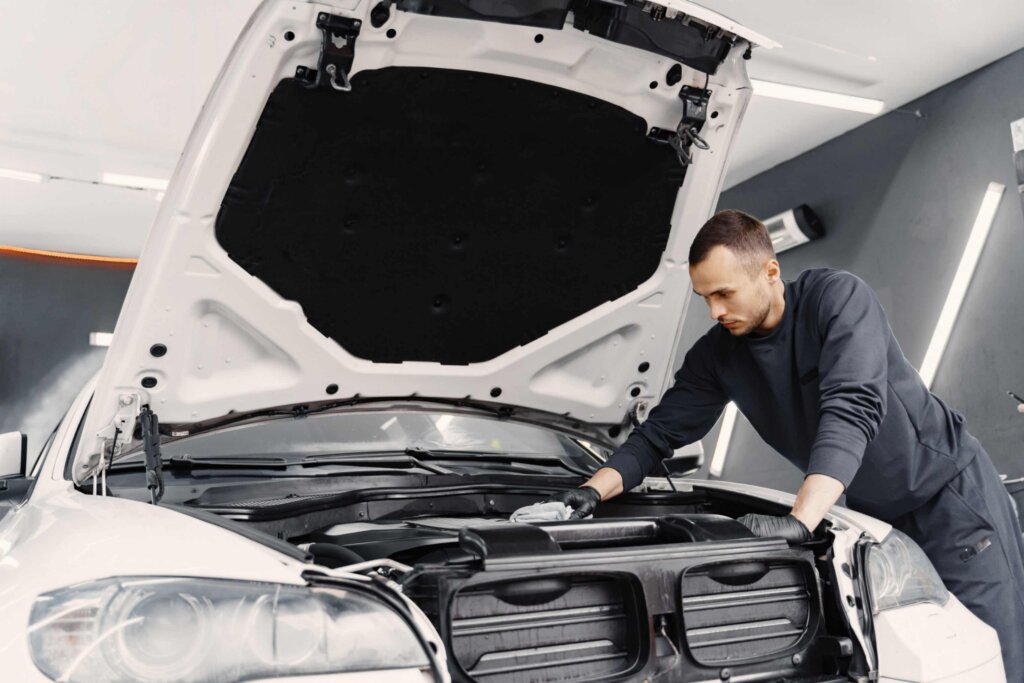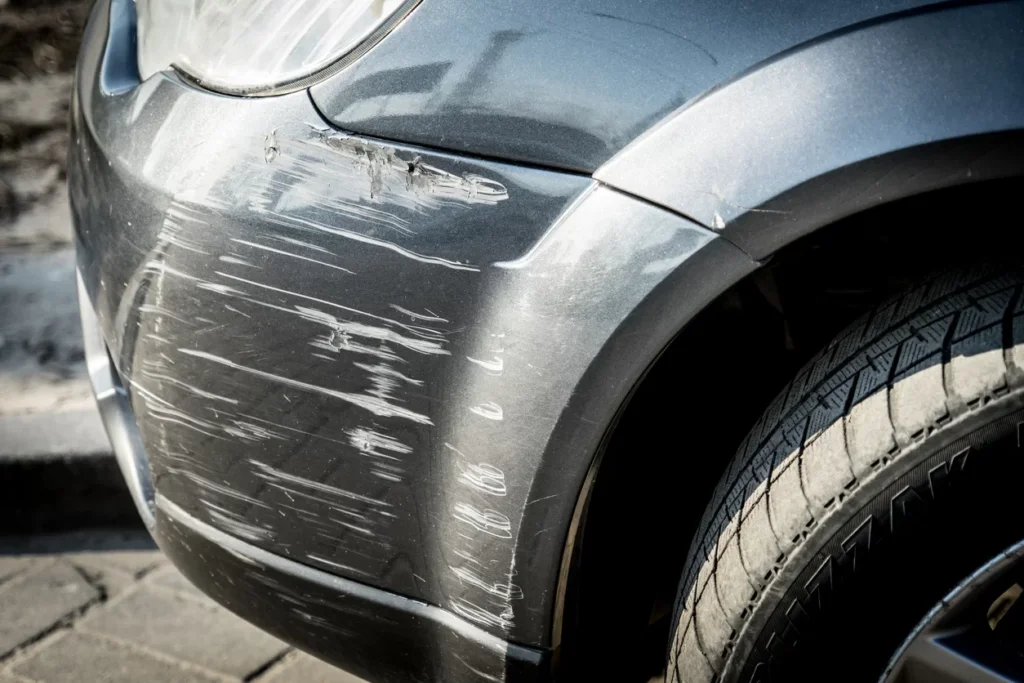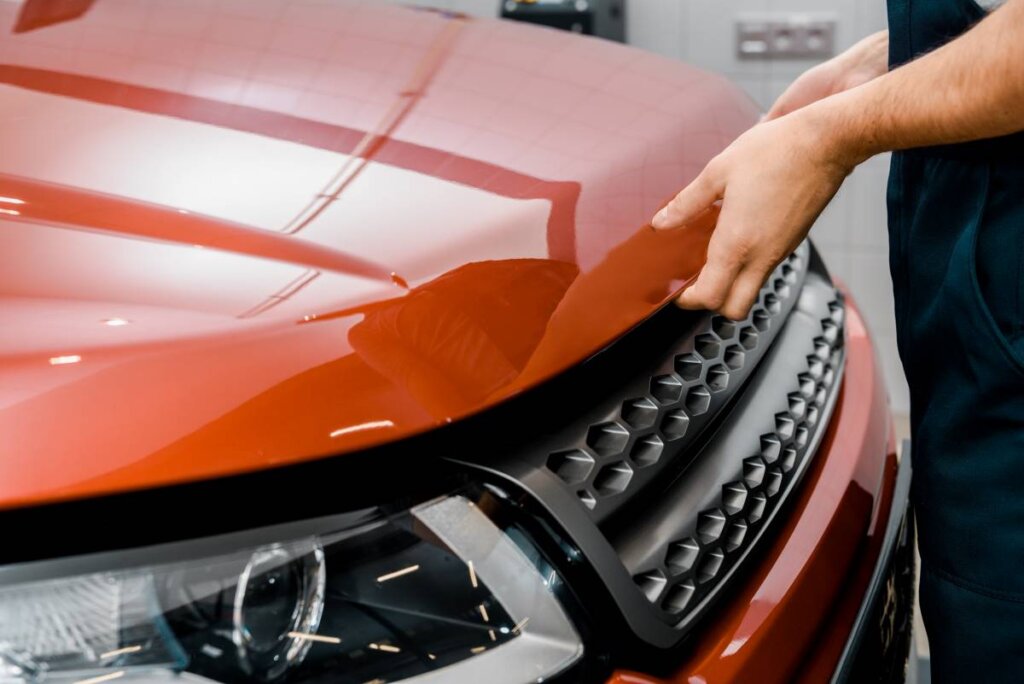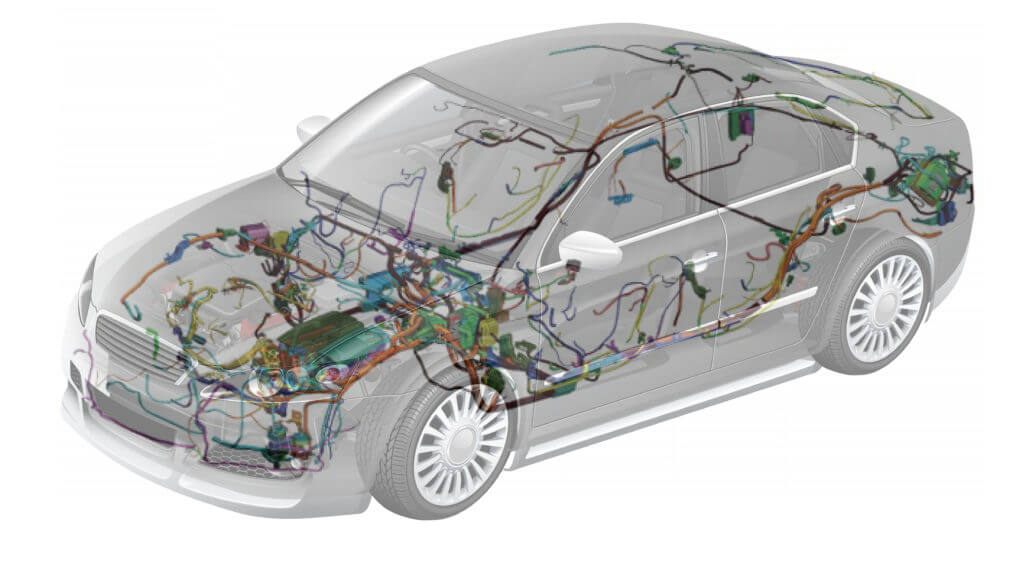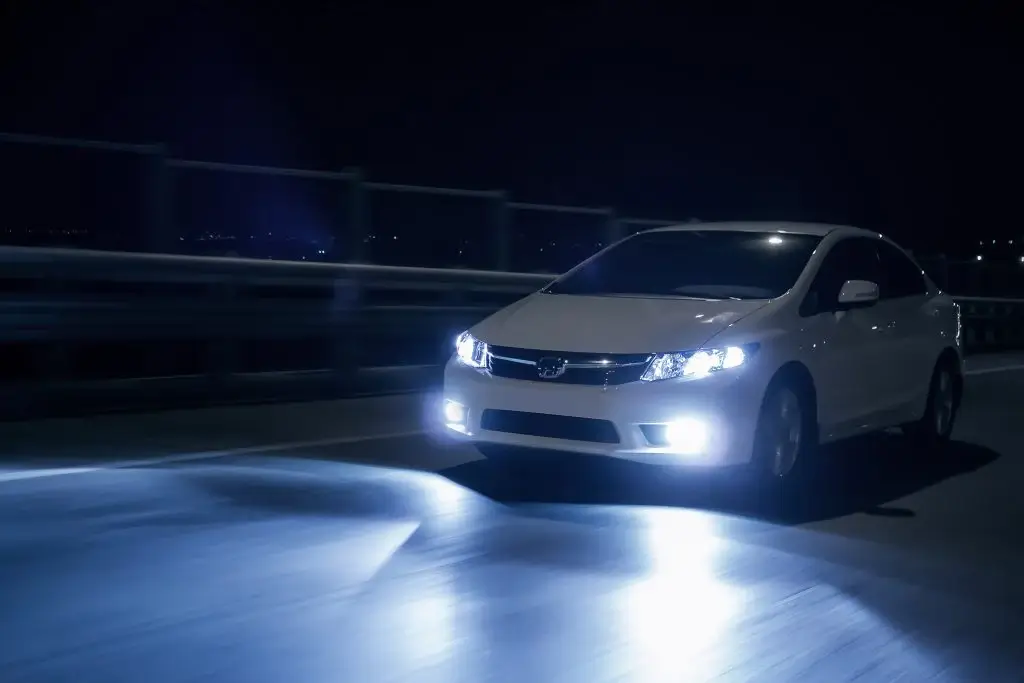Hitting the paving stone while driving the car and finding that your vehicle is clinking excessively and making an annoying noise which is not only irritating, but it is also a kind of warning signal. Your car makes noise over bumps happens when you have a worn suspension issue and occurs when the car creaks over bumps, potholes, debris, uneven surface, and many more. It can be a suspension part that is broken or may be loose.
This suspension system is relatively difficult to do by yourself to find the faulty part which is creating noise. However, an expert mechanic will find the suspension issue and resolve it to ensure that your vehicle is entirely ready to get back on the road.
What are the reasons if a car makes noise over bumps?
Here are some possible causes which create noise when a vehicle clunks over bumps:
- Damaged or worn struts: Ifthe damaged spring suspension fails to work correctly, the brace may get damaged. Shockers will keep popping inside out the strut tube. To check the noise, you can also steer the car wheels.
- Damaged or worn leaf spring chains: leaf spring chains are found on trucks, vans, trailers, and SUVs to aid the travel route condition. Unfortunately, leaf springs may break and bend. When they do, they generate a clunking noise. This problem generally happens at the end of the leaf spring chain.
- Worn or damaged Control Arms: Even under typical driving circumstances, control arms can deteriorate. If you drive in off-road conditions, the wear and tear hasten. Control arms may cause the wheels to drift out of alignment, causing the car to rattle when you steer the wheels over a bump. It also affects body mount.
- Poor ball joints: It is challenging for the driver to steer the car straight when one or more ball joints become worn. When the joint housing is detached, dirt or sand enters the joint and makes noises when the automobile travels. Additionally, if the joint is damaged, the ball will keep entering and exiting the housing while clunking.
- Damaged shock absorber: Damaged shock absorber: A shock absorber is a damper explicitly taking in wheel impulses. Shock absorbers make driving through rugged terrain tolerable, but they are also prone to damage. Particularly if the bushing becomes damaged, you will hear car makes noise over bumps. On the road, the car will also swerve to the side.
- Damaged bumper: it protects you from minor collisions. It is like a safety feature. If your bumper is damaged, it will make noises while driving and also degrades the aesthetic value. If your car is facing such problems, then there are multiple online platforms where you can checkout used replacement bumpers for sale.
10 common car noises, which could be problematic!
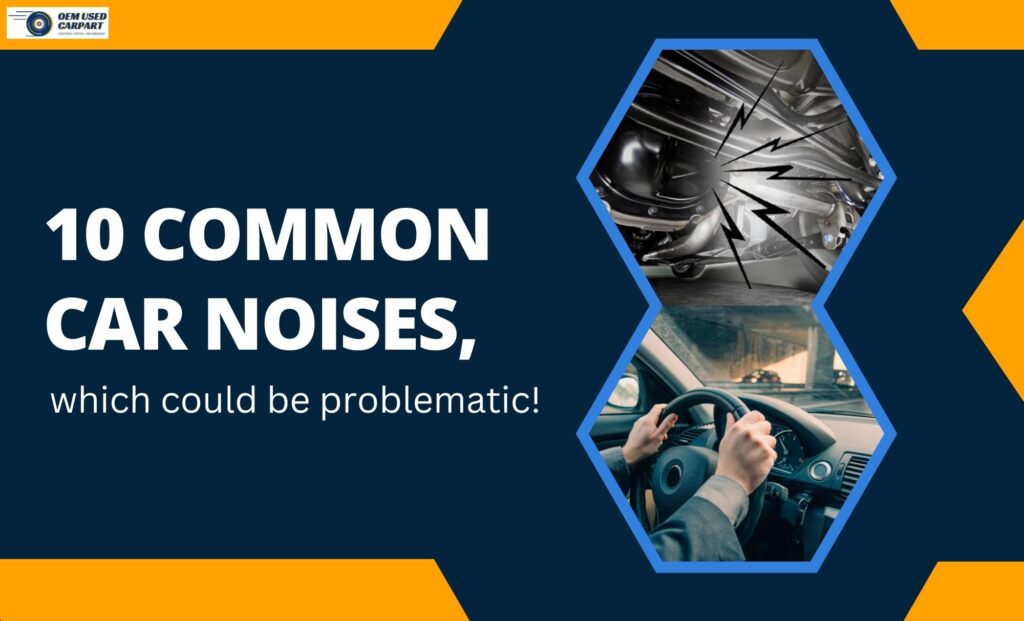
Our cars often seem to talk in a language of their own, replete with bangs, roars, and squeals. These easily blend into the background to the untrained ear unless something unusual captures our attention. Even then, it can be simple to let such sounds blend into the ground if you need to know what to listen for.
It can be challenging to understand this automotive terminology, but it’s still crucial to pay attention when your car speaks! They frequently make an effort to alert us to a problem.
Here are the 10 common noises which create a problem:
Humming or low-droning noise
The sound: Low droning noise will increase when you accelerate the vehicle
What it indicates: A fresh set of tiers not only gives you a comfortable ride, it will stay relatively quiet. When your vehicle’s deck becomes worn or old, it will start making a consistent droning sound, significantly will wear unevenly. On the other hand, underinflated tiers can also produce the same sound.
Squealing sound, the time you start your car
The sound: Loud squealing sound after you start the vehicle will moderately fade.
What it indicates: If you ever hear a squealing, screeching, loud noise from the front of the vehicle as you start the ignition, you may have a failing serpentine belt, or it is nearly at the end of its life span.
Whining or squealing sound
The sound: Groaning, whining, or squealing sound when you turn the staring wheel
What it indicates: If your vehicle has been manufactured within the last 50 years. The chance you have is the power steering wheel. While some latest vehicles implement power steering, a hydraulic system is the most common variant.
Growling or screeching
The sound: A high screeching sound or low, grating, growling noise when you step on
What it indicates: Your breaks can be the reason for all kinds of uneven sounds, indicating that your vehicle needs maintenance. Most of the high pitch sound happens because of the brake pad’s built-in wear indicator, which means you only need to replace the pads.
Rattling noise
The sound: A squealing, vibrating, or rattling noise coming from the wheel when you drive over a pothole or speed bump.
What it indicates: A lot is happening in the vehicle’s front end. You have a suspension system beside your engine with all the parts which can rattle, especially when you have bad bushings.
Roaring sound
The sound: The roaring sound will increase when you accelerate, mainly coming from below the driver’s seat.
What it indicates: Engines make noise, but so is the way to vent the engine’s exhaust. Normally the hot gas is run from the muffler, which decreases the roaring noise. Moreover, if there is a crack in the exhaust system, the gas runs out before it reaches the muffler.
Pinging or knocking
The sound: Pinging or knocking from the engine will increase with acceleration.
What it indicates: When car makes noise over bumps the particular sound may depend on your specific engine. It is generally referred to as an “Engine knock.” engine is usually tired with the improper discharge of fuel inside the engine cylinder.
Loud bang
The sound: This sound is like a gun or a firecracker
What it indicates: The sound of a backfire is frightful. In most circumstances, the sound of an explosion results from fuel burning at the wrong time (expect some catastrophic blast). Your engine may run too rich (i.e., air ratio to fuel heavily leaning towards the fuel), the timing can be off, or there can be an issue with the spark plug.
Rumbling
The sound: A slow engine rumbling accompanied by shaking when idling
What it indicates: Your engine needs the correct proportion of fuel and air, as well as a functioning spark plug to start the ignition, in order to operate effectively. Low RPM rumbling vibrations could cause by a deficiency in one of these components.
Noise like an off-kilter washing machine
The sound: The shaky sound like a washing machine on a high rotation with a loose chain inside
What it indicates: For good reason, the similarity to a washing machine or clothes dryer is uncanny. Mechanics frequently make this comparison. However, the consequences are significantly more severe if you hear this sound while driving. This noise frequently indicates that your wheel is insecure because a loose lug nut is spinning and slamming inside your hubcap. When you can safely do so, stop as soon as you hear this noise, tighten the loose nut, or dial roadside help to have someone transport you to a mechanic.
If you want to know more about autoparts, then checkout Used Car Parts.
FAQs
Hitting the paving stone while driving the car and finding that your vehicle is clinking excessively and making an annoying chuckling noise which is not only irritating, it is also a kind of warning symbol. It happens when a worn suspension issue occurs when the car makes noise over bumps, potholes, debris, uneven surface, and many more. It can be a suspension part that is broken or may be loose.
Vehicle suspension consists of many parts. It can take hours or also a whole day to repair. It will cost you approximately $1000 to $5000. The exact costs depend upon the type of damage and the spare part your vehicle needs at that time.
Engines make noise, but so is the way to vent the engine’s exhaust. Normally the hot gas is run from the muffler, which decreases the roaring noise. Moreover, if there is a crack in the exhaust system, the gas runs out before it reaches the muffler.


